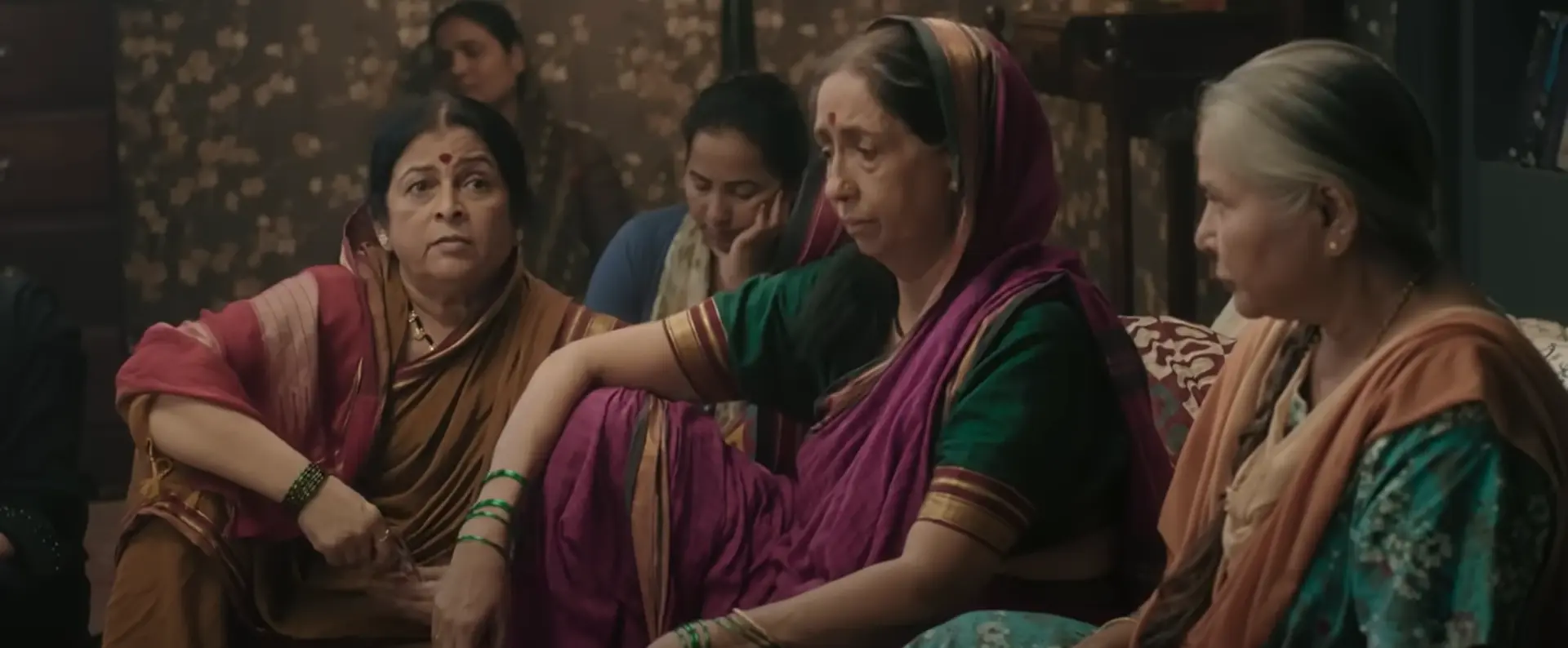
Dark But Real: 5 Short Films That Explore the Shadows of Society
Cinema, in its most authentic form, serves as a mirror to society, reflecting not just its triumphs and joys, but also its uncomfortable truths and shadowed corners. It holds the power to distill complex human experiences into compelling narratives that can provoke thought, stir debate, and foster empathy.
While storytelling exists in many formats, the short film, with its focused narrative and unconstrained creativity, offers a particularly potent medium for such explorations. It doesn’t need sprawling timelines to make a point; its power lies in its precision and its ability to leave a lasting impact through a single, powerful idea.
At Royal Stag Barrel Select Shorts, we pride ourselves on being a platform for storytellers who dare to venture into these grey areas, crafting films that are not merely watched, but felt. These narratives challenge our perceptions and force us to confront realities we might otherwise ignore. For anyone searching for short movies to watch that resonate with depth and meaning, or specifically for short films about social issues, this list is a perfect starting point.
Here are five dark short films from our collection that are not just stories, but societal commentaries, each exploring the shadows in its own unique and unforgettable way.
1. Juice: The Unspoken Simmer of Patriarchy
At first glance, Neeraj Ghaywan’s ‘Juice’ depicts a scene familiar to many: a middle-class get-together. The men are in the living room, casually discussing politics, work, and the state of the world over drinks, their laughter and loud opinions filling the air. Meanwhile, the women are confined to the sweltering heat of the kitchen, managing dinner, tending to children, and exchanging tired pleasantries amidst the clatter of pots and pans.
The genius of ‘Juice’ lies in its subtlety. There is no overt conflict or dramatic confrontation. Instead, the film masterfully builds a suffocating atmosphere of casual misogyny and normalised patriarchy. The camera follows Manju Singh (played with extraordinary nuance by Shefali Shah) as she navigates this divided world. Her face, beaded with sweat, becomes a canvas of unspoken frustrations. The simmering rage she feels is not directed at any single person but at the entire ingrained system that takes her labour for granted while her husband and his friends perform their masculinity on the living room couch.
The film’s climax is a quiet act of rebellion, a simple gesture that speaks volumes, questioning decades of accepted gender roles without a single word of protest. ‘Juice’ is a powerful commentary on the invisible labour and emotional burden carried by women, making it one of the most poignant short films about social issues available on our platform.
2. Chutney: The Deceptive Flavours of Domestic Life
On the surface, ‘Chutney’, directed by Jyoti Kapur Das, is a simple drawing-room conversation. Vanita (a brilliantly deceptive Tisca Chopra) is a homemaker from Ghaziabad, seemingly plain and unassuming. She is hosting her new neighbour, a young and attractive woman who she suspects is having an affair with her husband. Over a plate of pakoras and her famous homemade chutney, Vanita begins to tell a story.
What starts as idle gossip slowly spirals into a chilling tale of secrets, infidelity, and the dark underbelly of seemingly ordinary lives. Vanita’s narrative, delivered with a detached calmness, peels back the layers of her mundane existence to reveal a shocking and gruesome reality. The film explores the idea that darkness doesn’t always announce itself with a bang; sometimes, it lurks quietly behind the facade of domesticity and social niceties.
‘Chutney’ became a viral sensation and is considered one of the best short films on YouTube for its masterfully crafted suspense and a twist ending that is both shocking and thought-provoking. It serves as a stark reminder that the most unsettling horrors are often the ones hidden in plain sight.
3. Devi: A Roomful of Unheard Voices
Perhaps one of the most gut-wrenching films in our collection, ‘Devi’ is a filmic expression that demands to be heard. Directed by Priyanka Banerjee, the film brings together a powerhouse ensemble cast, including Kajol, Shruti Haasan, and Neha Dhupia, among others. The entire story unfolds in a single, cramped room, where a group of women from vastly different walks of life are living together. They are old, young, educated, illiterate, rural, and urban.
The tension in the room is palpable as they debate whether to let a new person in. It is only as their stories and the reason for their cohabitation are revealed that the film’s devastating theme comes into focus. Each woman in the room is a victim of sexual violence, a silent statistic brought to life. ‘Devi’ is not an easy watch. It is a raw, unflinching look at the epidemic of violence against women in India, challenging the viewer to confront the sheer scale of the problem. By placing these women together, the film creates a sense of shared trauma that transcends class, age, and religion.
It is a harrowing and essential piece of cinema, a stark portrayal of a societal shadow that we can no longer afford to keep in the dark. It stands as a testament to the power of film to give voice to the voiceless.
4. Ahalya: A Mythical Take on Modern Predation
Sujoy Ghosh’s ‘Ahalya’ is a slick, stylish thriller that reimagines a Hindu mythological tale in a contemporary context. The story revolves around a young police officer who visits the home of a famous, aging artist, Goutam Sadhu, to investigate the disappearance of a model. There, he meets the artist’s stunningly beautiful and much younger wife, Ahalya, played by Radhika Apte.
The film is steeped in an atmosphere of suspense and seduction. As the officer becomes increasingly infatuated with Ahalya, he is drawn deeper into a mysterious and dangerous game. ‘Ahalya’ cleverly uses its mythological source material to explore timeless themes of desire, infidelity, and the objectification of women. However, Ghosh gives the ancient story a modern twist, subverting the narrative to empower its female protagonist. The film delves into the shadows of the male gaze and the predatory nature that can exist in artistic and professional circles.
It’s a dark short film that is both intellectually stimulating and viscerally thrilling, proving that even ancient stories can be used to shine a light on the darkest corners of modern society. Its clever narrative and suspenseful execution make it one of the best short films of all time in the thriller genre.
5. Carbon: A Glimpse into a Breathless Future
Set in the dystopian future of 2067, ‘Carbon’, directed by Maitreyi Bajpai and Ramiz Ilham Khan, paints a bleak picture of a world ravaged by climate change. In this future, oxygen is the most precious commodity, sold on the black market and controlled by corporations. Clean water is a memory, and humanity clings to survival in a toxic, desolate landscape. The film follows a man with an artificial heart (Jackky Bhagnani) as he navigates this grim reality, undertaking illegal oxygen deals to stay alive.
Starring Nawazuddin Siddiqui, Jackky Bhagnani, Yashpal Sharma, Prachi Desai, and Shashi Bhushan, ‘Carbon’ is a powerful cautionary tale about the environmental crisis we face today. The “shadow” it explores is not a hidden aspect of our current society, but the potential future that our collective inaction is creating. The film’s world is suffocating and hopeless, a direct consequence of the greed and environmental neglect of previous generations. It serves as a science-fiction allegory for a very real and present danger.
By showing us a future where every breath is a transaction, Carbon forces us to reflect on the value of the natural resources we currently take for granted. It is a chilling and urgent call to action, reminding us that the darkest shadows are the ones we willingly cast ourselves.
Also Read: 10 Select Short Films to Watch During Your Free Time
Summary: Why Do These Stories Matter?
Each film is a standout in our extensive library, reflecting the uncomfortable realities and systemic issues that fester just beneath the surface of our society. They reflect ‘discerning narratives’ on patriarchy, hidden abuse, sexual violence, predation, and environmental collapse. They represent the bold and essential voice of independent cinema, a voice we are committed to amplifying.
We invite you to explore these and many other ‘select stories’ on the Royal Stag Barrel Select Shorts YouTube channel. Watch them, share them, and let the conversations begin.
